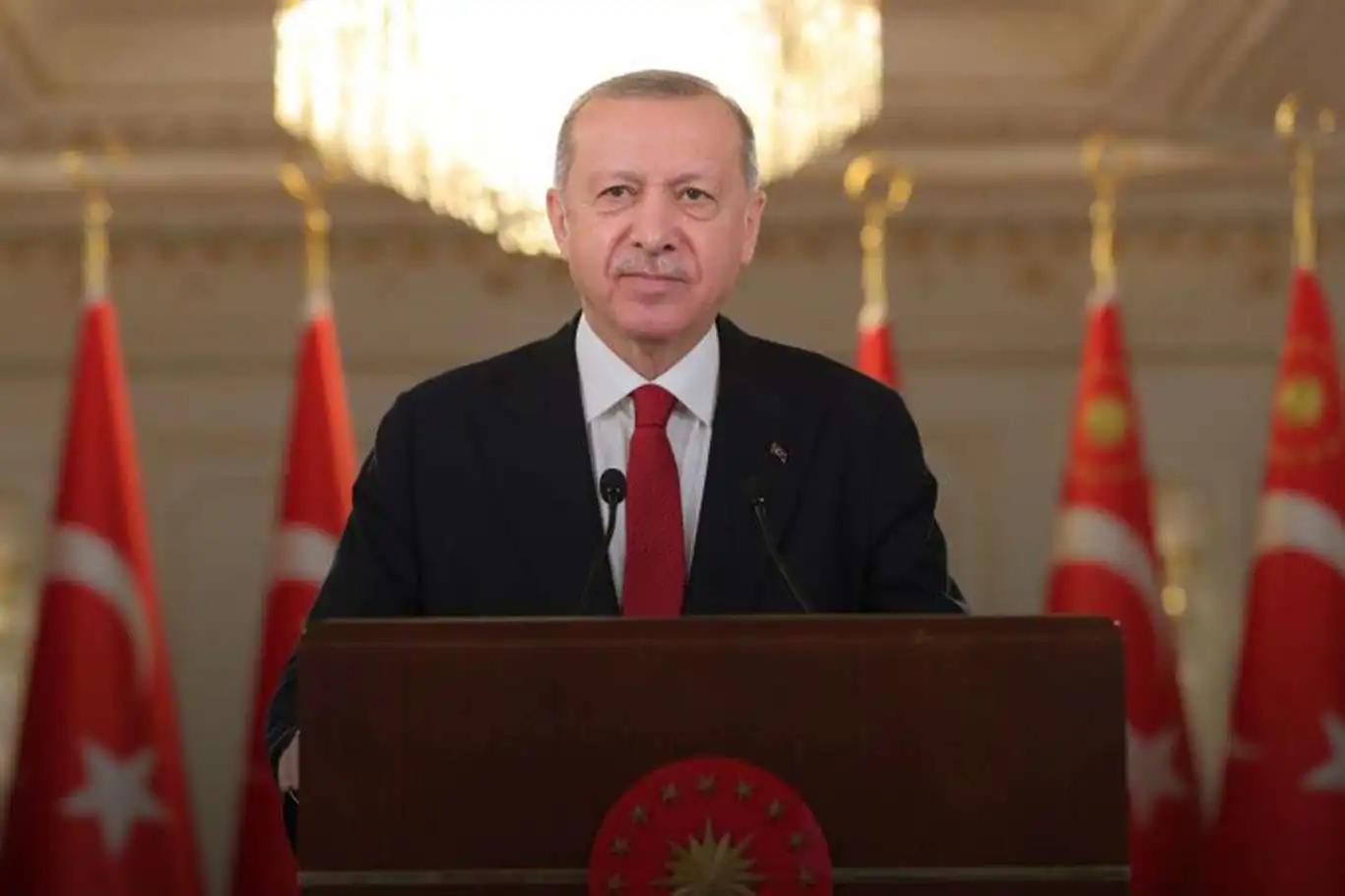Erdoğan: New railway link Is Türkiye’s bridge between Asia and Europe


Türkiye has launched a landmark infrastructure project with the foundation-laying ceremony for the 224-kilometer Kars-Iğdır-Aralık-Dilucu Railway Line in the eastern province of Iğdır.
The railway represents a critical segment of the Zangezur Corridor, a strategic route connecting Azerbaijan with its Nakhchivan exclave through Armenia, poised to reshape regional connectivity across the South Caucasus and beyond.
Backed by €2.4 billion ($2.79 billion) in international financing, the project is expected to enhance regional trade, strengthen economic ties, and position Türkiye as a central hub in the Middle Corridor linking Europe and Asia.
Speaking at the ceremony, Turkish Minister of Transport and Infrastructure Abdulkadir Uraloğlu described the railway as “one of the most concrete steps toward realizing the Zangezur Corridor” and highlighted its potential to foster economic cooperation among Türkiye, Azerbaijan, and Armenia while promoting regional stability. “This is not only a milestone for Türkiye but also for the future of the entire South Caucasus and Eurasia,” he added.
The Kars-Iğdır-Aralık-Dilucu Railway is designed to handle 5.5 million passengers and 15 million tons of freight annually upon completion in 2029. The double-track, electrified line features advanced infrastructure, including five tunnels, 19 cut-and-cover tunnels, three viaducts, 10 bridges, 144 underpasses, 27 overpasses, and 480 culverts, reflecting its engineering complexity. The route will link Kars, a historic trade gateway, to the Dilucu Border Gate near Nakhchivan, improving logistics and providing faster access for Eastern and Southeastern Anatolia’s production to international markets.
President Recep Tayyip Erdoğan, in a message read at the ceremony, emphasized the railway’s strategic importance, calling it “a bridge and a significant leap in development.” He highlighted the project’s expected contributions to regional prosperity and tourism while integrating industrial and agricultural hubs such as Iğdır into global trade networks.
The Zangezur Corridor, part of the broader Middle Corridor, aims to streamline trade from Beijing to London, offering an alternative to existing routes like the Baku-Tbilisi-Kars railway. The corridor’s strategic importance was formalized during a trilateral summit hosted by U.S. President Donald Trump on August 8, 2025, where Azerbaijani President Ilham Aliyev and Armenian Prime Minister Nikol Pashinyan signed a joint declaration to end decades of hostilities over Nagorno-Karabakh.
While Iran has expressed concerns over potential geopolitical implications, Armenian Prime Minister Pashinyan assured Iranian officials that corridor roads under Armenia’s jurisdiction would remain secure and emphasized potential economic benefits, including new trade routes from Iran to the Black Sea.
The railway project forms part of Türkiye’s broader infrastructure vision under President Erdoğan, which seeks to expand the national railway network to 17,500 kilometers by 2028 and 28,600 kilometers by 2053. Projects such as the Baku-Tbilisi-Kars railway, the Eurasia Tunnel, and the Yavuz Sultan Selim Bridge have already bolstered Türkiye’s position as a bridge between Asia and Europe.
The Kars-Iğdır-Aralık-Dilucu line, developed by Kalyon Holding with financing led by Japan’s Mitsubishi UFJ Financial Group, Sweden’s EKN Export Credit Agency, and Austria’s OeKB, underscores Türkiye’s ability to attract global investment for strategic initiatives. Azerbaijan is simultaneously developing its portion of the corridor, ensuring seamless connectivity.
Once operational, Kars will serve as the “steel gateway” to the corridor, while Iğdır will become a hub for trade, with Aralık and Dilucu acting as critical entry points.
Despite enthusiasm for the project, regional sentiment remains mixed. Social media posts reflect both support for strengthened Turkish-Azerbaijani ties and concerns over U.S. involvement. Analysts agree, however, that the railway represents a major step in regional integration and economic development, connecting local economies to global markets and bolstering the South Caucasus’ role in Eurasian trade. (ILKHA)
LEGAL WARNING: All rights of the published news, photos and videos are reserved by İlke Haber Ajansı Basın Yayın San. Trade A.Ş. Under no circumstances can all or part of the news, photos and videos be used without a written contract or subscription.
More than 150 Muslim scholars, clerics, and intellectuals from over 50 countries convened at Istanbul’s historic Eyüp Sultan Mosque on Friday to launch an eight-day conference titled "Islamic and Humanitarian Responsibility: Gaza."
Russian state nuclear corporation Rosatom has commenced the final assembly of the VVER-1200 reactor for the fourth power unit of Türkiye’s Akkuyu Nuclear Power Plant (NPP), a landmark milestone for both the Russian and Turkish nuclear industries.
Two children with severe hearing impairments underwent successful cochlear implant surgeries, also known as “bionic ear” procedures, at Gazi Yaşargil Training and Research Hospital in Diyarbakır.